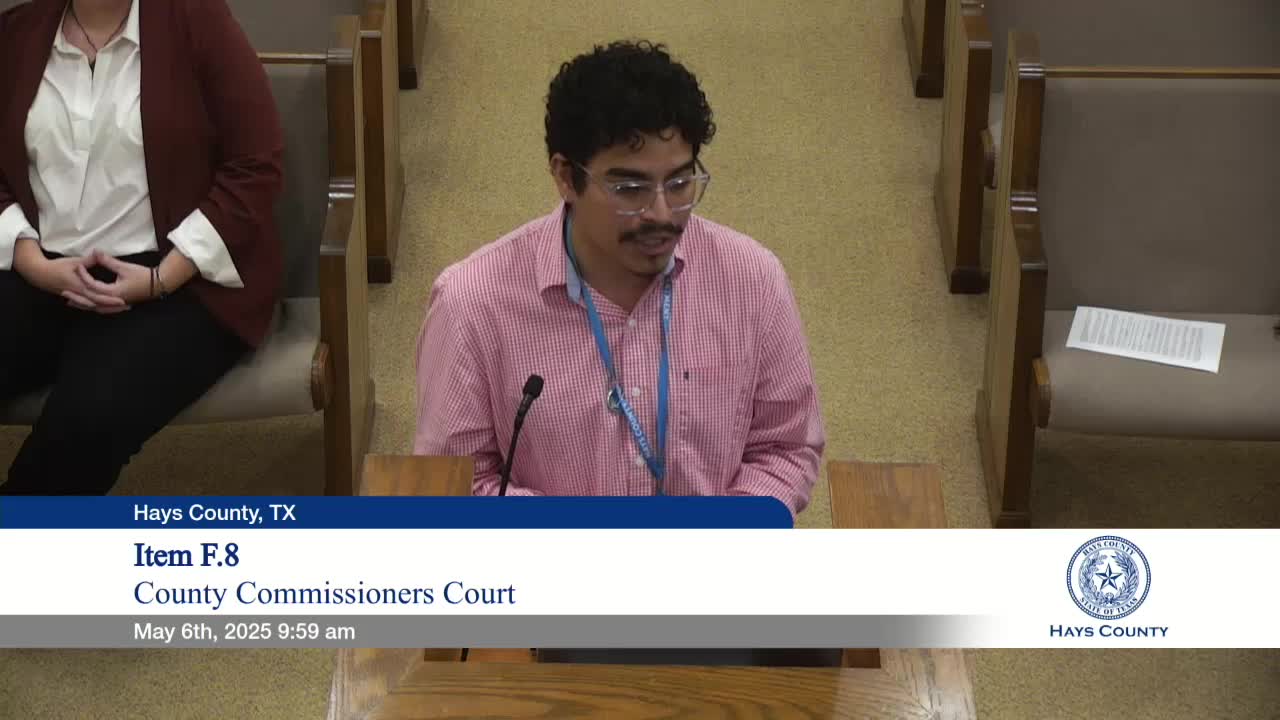Hays County health director reviews measles response, cites communication leaks and lab limits
Get AI-powered insights, summaries, and transcripts
Subscribe
Summary
The health department presented an after‑action report on a February–March measles exposure that praised partnerships but identified communication leaks and laboratory testing gaps, and recommended MOUs and staff training.
The Hays County Health Department presented an after‑action report May 13 on a February–March measles exposure and its public‑health response. Health Director Matthew Gonzales told the court the department quickly activated response protocols but encountered problems with information leaks and laboratory testing coordination.
Gonzales said the department established incident command and emergency operations coordination within hours of notification from the Texas Department of State Health Services (DSHS) and prepared press releases and media toolkits. After confirmation of a positive measles case, the health department expanded its coordination with EMS, fire, law enforcement, hospitals, long‑term care facilities and other partners.
Findings and problems identified - Strengths: Gonzales said partnerships — including a network of designated infection‑control officers created after COVID — helped coordinate a rapid response. The department also had ready templates and an incident‑command structure informed by recent outbreaks (COVID, monkeypox, West Nile). - Laboratory/testing capacity: The department relies on private labs and DSHS; Gonzales said Hays County needs more streamlined MOUs with providers to speed testing and diagnosis in future notifiable‑disease events. - Communication leaks: Gonzales described two premature disclosures of case‑related information — an external disclosure by a university partner and an internal release that shortened the department’s time to prepare and vet public messaging. He said the leaks increased pressure on the public‑information process and could have risked identifying the patient. After consultation, he said DSHS confirmed no HIPAA violation had occurred, but the county needs stronger controls on draft releases and watermarking, stricter “need‑to‑know” practices, and a clear MOU on release criteria.
Questions from commissioners Commissioner Adelphi asked whether there were consequences for the leaks; Gonzales said no HIPAA violation had been confirmed but noted the county would be at legal risk if identifiable protected health information had been released. Judge Becerra and Commissioner Smith praised the level of detail in the report and urged internal safeguards so the public can trust county messaging during public‑health incidents.
Next steps Gonzales said the department will: - pursue MOUs with clinical partners to improve testing lead times; - strengthen internal and external communications protocols, including watermarking and approval thresholds; and - provide additional staff training on the National Incident Management System (NIMS) and incident‑command documentation to ensure proper recordkeeping for potential FEMA reimbursement and legal compliance.
Ending Commissioners thanked health‑department staff for the transparent after‑action review and directed staff to return with proposed MOUs and protocol changes.
